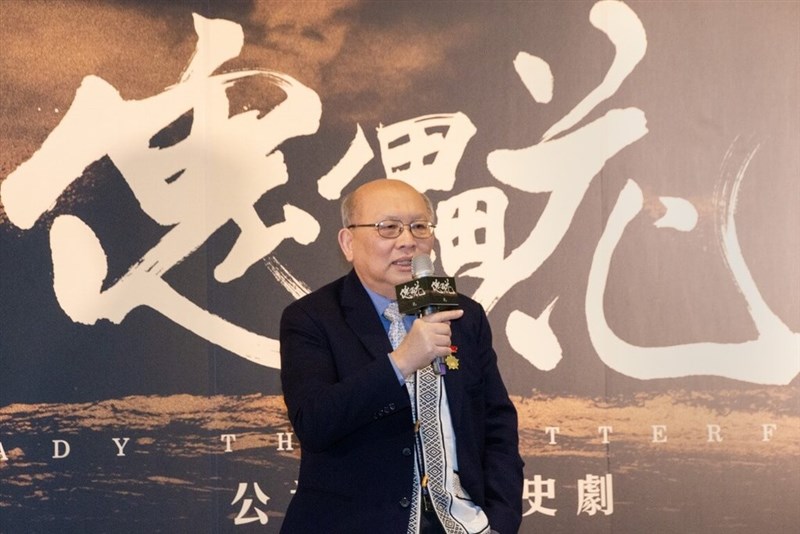
Taipei, Nov. 17 (CNA) Chen Yao-chang (陳耀昌), the physician who performed Taiwan's first bone marrow transplant and the author of the historical novel "Puppet Flower" (傀儡花), has died at the age of 76.
Chen's death was confirmed Monday by Wang Jung-wen (王榮文), chairman of Yuan-Liou Publishing Co., which is scheduled to publish two new books by Chen by the end of this year.
Born in 1949, Chen graduated from National Taiwan University's School of Medicine. In 1983, he completed Taiwan's first autologous bone marrow transplant, making him the first doctor in the country to perform the procedure. He was also a pioneer in stem cell research, completing Taiwan's first peripheral blood stem cell transplant in 1992.
Among Chen's students is Health Minister Shih Chung-liang (石崇良), who at a public event on Monday called Chen "my most important instructor, our chief advisor."
Shih praised Chen for traveling to Vietnam to guide bone marrow transplant procedures, and for his efforts to make regenerative therapies more accessible, saying, "It was always the teacher's dream to make regenerative medicine not be just for the rich."
News of Chen's death led many people to post tributes on his Facebook page, sharing photos and messages in memory of his guidance, help, and contributions.
In addition to his medical legacy, Chen was recognized as a novelist devoted to Taiwanese history, with "Puppet Flower: A Novel of 1867 Formosa," his most noted work.
"Puppet Flower" recounts the Rover Incident between two Indigenous groups in southern Taiwan and an American merchant ship, which escalated into further conflict. It was later adapted into the television series "Seqalu: Formosa 1867" (斯卡羅).
Tsao Jui-yuan (曹瑞原), director of "Seqalu," told reporters Monday he had been "deeply struck and inspired" when he first read "Puppet Flower," which offered him "a new way to understand history."
He described Chen as an elder whom "you never felt pressured around, someone who always treated you with tenderness, patience, and an open mind."
Chen once told reporters that history is valuable precisely because it reveals multiple perspectives. He said the Chinese-speaking world has long overemphasized exams, "but forgotten that history is what allows us to know ourselves again, or to grow again."
In a statement on Monday, the Ministry of Culture said it will recommend that President Lai Ching-te (賴清德) posthumously honor Chen.
-
Society
Lunar New Year's Day travel drives freeway traffic up roughly 30%
02/17/2026 04:18 PM -
Politics
U.S., Philippines reiterate importance of Taiwan Strait peace
02/17/2026 03:49 PM -
Society
Man killed, Vietnamese wife suffers 90% burns in Taichung house fire
02/17/2026 02:58 PM -
Society
-
Culture
Heritage at risk: Taiwan's last hand-pulled ferry
02/17/2026 11:02 AM